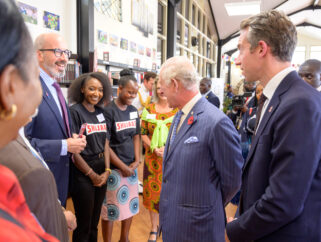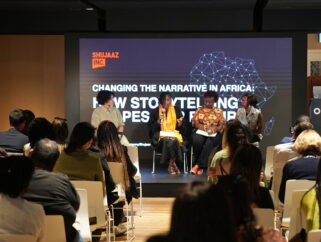Money matters in Tanzania, yet mobile matters more [ARCHIVE]
- 14 Jan 2016
When you don’t have much money, you’ve got to make it go further. In Tanzania, half of young people say they don’t have enough money to get them through the day. That context dominates the way young people relate to friends and family and the way they live their lives, according to the latest #Shujaaz360 report, which we will publish in Dar es Salaam next week.
Last month, we published our report on Kenya’s 15-24 year olds in Nairobi and the response was overwhelming. It sparked a national debate about what we termed #SexMoneyFun and it exposed the way young people are often misunderstood by ‘grown-up’ Kenyan society.
Once again, we’ve taken our 360 approach and triangulated our data: quantitative data from huge nationally representative surveys, plus qualitative data from in-depth interviews, discussions, focus groups and GroundTruth events, plus the insights from our database of SMS messages and social media interactions between young people and our comic book hero, DJTee.
There are some crucial insights about the way young people relate to one another in groups, about the way they rely on their families, about big differences between the economic opportunities available to boys and girls and, of course, about what they say about their love lives.
But at the heart of it all, is the dominant daily consideration of money, or lack of it. While just seven percent of 15-24s in Tanzania say they have enough money to do as they please, four out of ten say they can only just get by and more than half say that every day they have to cut back on transport or even food.
So perhaps it shouldn’t surprise us that more than half say they are saving and budgeting, that four out of ten are borrowing and that more than a third are lending. In the only African country to have achieved ‘interoperability’ between mobile money providers, we see that almost half are using mobile phones not just as wallets but also as a commitment savings tools – to help them “lock” their meagre accumulated funds and avoid spending temptations.
And it is those mobile phones which are enabling 15-24s in Tanzania not just to manage their money but to manage their entire lives. Although two thirds have their own phone, nine out of ten live in a household with at least one phone they can access. Smartphones are rare however and are mainly found in cities.
Young people in Tanzania, like young Kenyans, are going online using mobile phones and they are doing it after dark. The ‘sunset social media’ phenomena is even more pronounced in Tanzania, with more than half of internet users online between 6-10pm. Unlike American teens, who are on and off the internet all-day everyday, in Tanzania, most spend an hour online after dark.
With nine out of ten social media users on Facebook, the sociable nature of Tanzania’s young people can be the only possible explanation for why, with so little to spare, they spend an astonishing one third of their monthly income on airtime and data. Money matters, but being mobile matters more.





